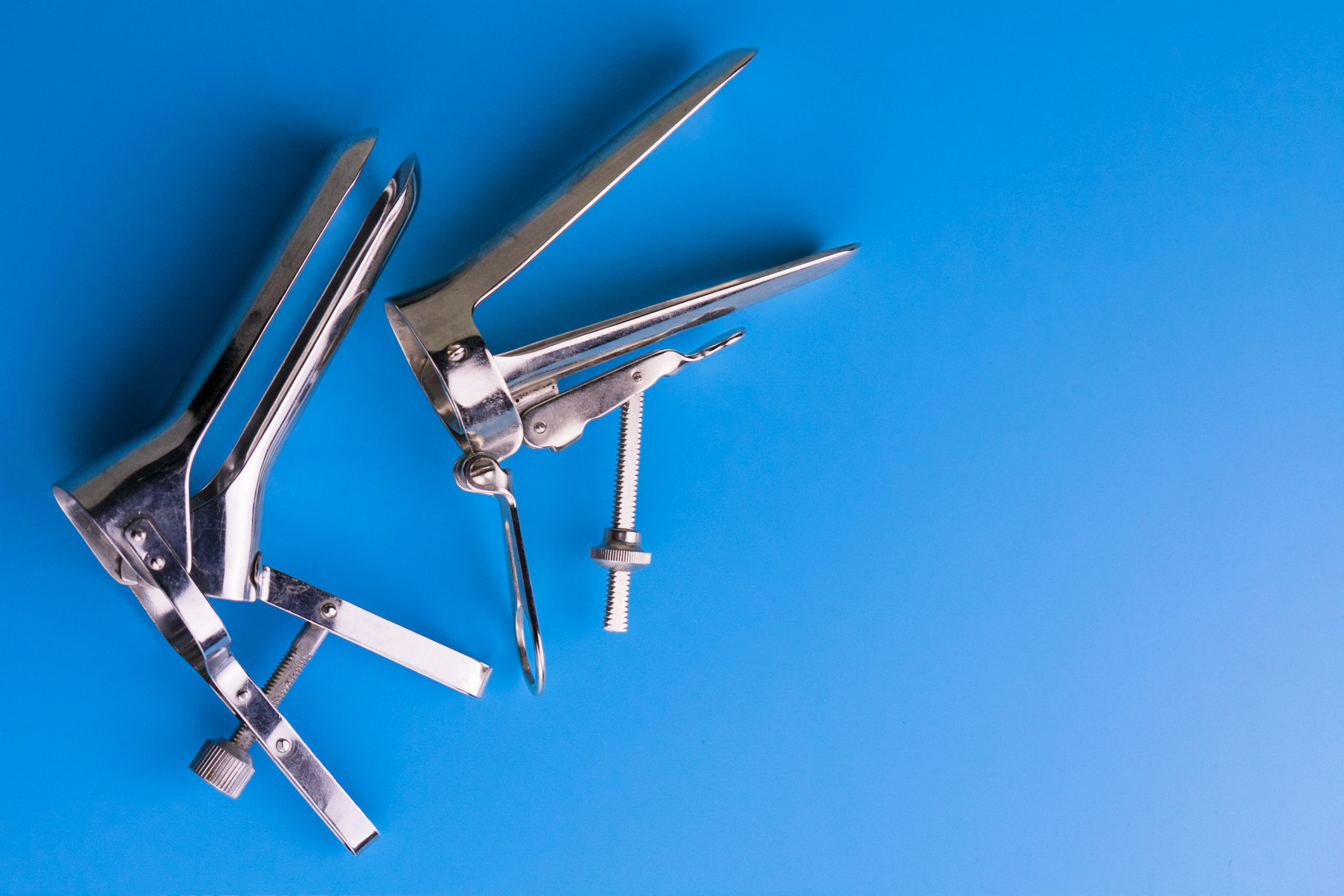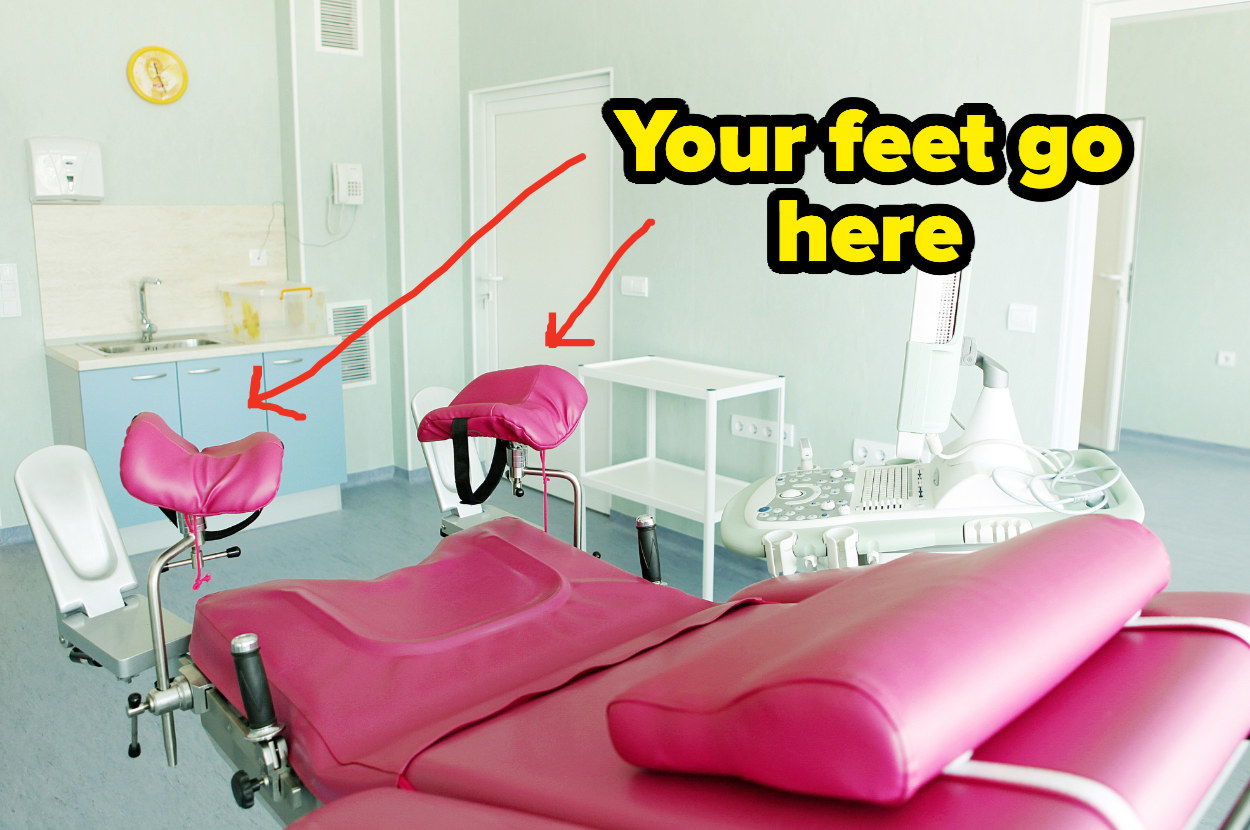Going to a gynecologist for the first time makes a lot of people nervous, so if that sounds like you, you're not alone. To make things easier, I asked people in the BuzzFeed Community to share the things they wish they knew before their first appointment.
Here are the important tips they shared:
1. "Be honest with your gynecologist and ask all the questions you want. I started going to the gynecologist before I had sex, so I was tense and uncomfortable, but I asked the nurse a bunch of questions and then the doctor. He told me to breathe and literally told me everything that happened before he actually did it."
2. "If the doc isn't listening, don't be afraid to show evidence of what you're talking about. I had a lot of gynecological problems as a teen, and my mom took me the first time. The nurse practitioner kept minimizing what I was describing and insisted I was just going through puberty and overreacting about it."
"My mom made me keep the panty liner on my underwear after I undressed, and when the NP came back in, my mom said, 'This may be gross, but LOOK.' That's when the NP finally acknowledged that the discharge I was experiencing wasn't normal. Be gross if that's what it takes to be heard!"
3. "Female and male OB-GYNs have equal potential to be either really amazing or bad at their jobs. Anecdotally speaking, some of the best care I have received as a patient has been from male OBs, and some of the worst has been from female OBs. You deserve to feel comfortable no matter what, but don’t just choose a woman doc because you think they’ll be better just because they’re a woman. It hasn't worked like that in my experience. Go with whoever makes you feel seen and heard."
4. "I wish I knew that some things warrant getting a second opinion. I was seeing a gynecologist and she found some 'abnormal cells.' It was something that could possibly develop into cancer, and she wanted to do a loop electrosurgical excision procedure (LEEP). While rare, it can cause difficulty getting pregnant, the potential for preterm birth, or having a low-birth-weight baby."
"I went to another gynecologist, who suggested we just keep an eye on the area because it often corrects itself, but he wanted to make sure it wasn’t getting worse. I went to him every six months, and after about two years, it went away and I haven’t had any more issues. I was able to avoid a likely pricey procedure that was unnecessary for me."
—Anonymous
5. "I would say that if you’re unsure or don’t know if you’re ready for a gynecological appointment (like if you’re a teen or young adult thinking about starting on birth control or becoming sexually active), you can always request a consultation appointment where you don’t have an exam at all. The right medical support team won’t push you to have an exam if you’re not ready."
6. "If you are a minor and a parent is forcing you to get an exam, you can refuse the exam, and the gynecologist has to stop for your safety and comfort. After Hurricane Katrina, we were displaced, and my mom wanted me to be seen immediately in case I was up to something. The first doctor I saw while displaced was a man. He gave off very creepy old-man vibes."
"When the nurse asked if I was uncomfortable (after noticing my fidgeting and nervously answering questions), I said 'Yes.' She dismissed everyone from the room (including Mom) and asked why. I told her about my discomfort with the doctor, and she immediately ended the appointment, then suggested I meet with other doctors who were on staff before committing to an exam if that’s what I wanted to do. She taught me a valuable lesson about self-advocacy. I will never be uncomfortable with a doctor again. I’m very vocal about what is and isn’t working for me. It’s been 16 years since then, and I will never forget that lesson."
—Anonymous
7. "If you suffer from vaginismus (the tightening of the vaginal wall muscles during any form of penetration), then gynecological examinations will be difficult, particularly the insertion of the speculum. I had a cervical screening test done a few months ago, and I talked about my vaginismus with the gyno, and although I did cry during the examination, she took it very slowly and was extremely understanding. Talk to the doctors, because they want the examination to be a success for both parties! If you stay silent, they will not improve."
8. "I wish I knew how painful it would be. I'm 26 and a virgin. My mom always told me it would simply be 'uncomfortable,' with 'no pain, just pressure.' Nope. The deeper the doctor inserted her finger, the more unbearable it became for me. And I was doing every relaxation technique. I was breathing slowly. I wasn't clenching. It HURT. She couldn't even go all the way to my cervix, and I still had pain and discharge after. I have no idea what my 'first time' will be like if penetration hurt me that much."
—Anonymous
9. "Speculums are different sizes. First-timers should ask for a smaller one. I don’t know if they still do this, but my first gynecologist also used to run the speculum under warm water, since those things can be cold."

10. "The speculum HURTS, and I'm normally shallow breathing to get through it. I always warn the doctor that I'm no good at Pap smears, and she tells me that as long as I don't scream or close my legs, it's all good."
11. If you're getting an IUD, ask them to numb the cervix and dilate you before removal/replacement. Also, if you have anxiety about it, have them prescribe you one Ativan before, and have someone drive you. Changes the whole experience. The first one was terrible; second one, still not fun, but so much less painful.
12. "It's not as scary and painful like people keep saying. When I had my first Pap smear, I thought it would be painful and uncomfortable because that's how everyone described it, but it was 30 seconds and I didn't feel anything. Some people are just more sensitive than others, but it's not that bad."
13. "RELAX!!! I know this sounds impossible because, um, how?! But it honestly makes a big difference. Being tense when they expand the speculum actually hurt a bit, so try to focus on your breathing, let your body fall loose, and remember it will be over so quickly!"
—jna5
14. "You don’t have to get fully undressed for the examination. You can just undress from the waist down. You can also decline the breast exam if you do them yourself regularly or have yearly mammograms."
15. "Pick an outfit to wear that is easy to change into and out of! I didn’t realize gynos usually do breast exams, so you get completely naked and change into a paper gown. Getting dressed and undressed quickly helps ease my nerves and gets the appointment over with a little faster."
16. "Wear socks. Yes, actual socks. Not tights, not tiny no-shows. You’re gonna have to put your feet up into metal footrests when the doc examines you. They are metal and they are always freezing. The whole thing is already uncomfortable, so make it a little less so by wearing some cozy socks!"
—Anonymous
17. "As a trauma survivor and an advocate for folks who have experienced unwanted sexual experiences, I'm so glad that I've had the resources to make gyno appointments feel safe and comfortable for myself and others. One really great tip is to keep your socks on! It can make you feel less naked. Bring comfort items, bring headphones and listen to something, ask for your doctor to go at your pace, take breaks, and explain everything they are doing and why before they do it. Treat yourself or take care of yourself afterward."

18. "The gyno will not know if you have been sexually assaulted unless it's already in your record or you tell them. Talking about trauma is hard, but making it through procedures that can feel traumatizing is harder."
"Just calling/messaging the office and saying something like, 'I'm a survivor, and would prefer if the doctor could ___' when you schedule the appointment or the day before can make a world of difference. And every provider I have ever seen has been very good about being respectful."
—Anonymous
19. "My doctor told me for my first, 'You don't need to be nervous. I've seen and smelled it all before.' It made me laugh so hard and made me feel better."
20. "It's more awkward for you than for the nurse/doctor. They've been doing their job for years, and they've seen darn near everything. So unless you've got a load of squirming tentacles down there or it talks back to them, you'll be fine."
21. And finally, "Like most things, the more you do it, the easier it gets. Once you know what to expect and that the doctor/nurse is looking at your vagina like an ordinary body part rather than a 'sex organ,' it gets easier."
Note: Some submissions have been edited for length and/or clarity.
